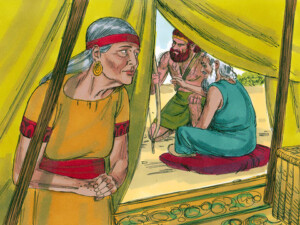Your Favorite Child – and What Not to Do
 Your Favorite Child.
Your Favorite Child.
Parents should not have a favorite child, but sometimes they do. Used as a noun, a “favorite” is a person or thing that is especially popular or particularly well liked by someone.
Because we have our own preferences and things to which we are drawn, it stands to reason that we can become drawn to others (including our children) who are more like us. When a son thinks just like his father thinks, it’s easier to sync with him than it might be with a son who thinks differently. To deny that this happens is ridiculous – because it does. If one child enjoys shopping and another child doesn’t, which child is the parent most likely to invite to go on a shopping spree?! It’s okay to shop with the child who enjoys shopping. What isn’t okay is ignoring the needs of the other child instead of getting into his world and finding something to do that will draw the two of you together.
Reckoning with the Draw
Like a magnet, we are drawn to those who think like us and respond as we do. Also like a magnet, we can be repelled by those who are opposite of us. It happens in the work place, in churches, and in our homes.
For starters, recognizing the draw helps us identify the trigger points that attract or repel us in relation to others. A wise parent will realize the tendency to relate to a particular child because his temperament and responses are like his. Recognize the draw, then take steps to do something about it.
Getting into his world.
A wise parent realizes that exposure and closing the gap helps bring comradery. The more we are exposed to a person’s way of thinking and responding, the better we understand them. My brother-in-law wisely made a point of spending time with Allen, his brother-in-law, every time the family went “back home” to visit his wife’s family.
David was not academically inclined, and neither was his uncle Allen, who could fix things and rig things to make them work. By spending time with Allen, Dave saw a similar skill in both and valued what some may have called a deficiency.
“Every time I’m with Allen,” Dave said, “I get insight into the way David thinks, and I understand him better.”
You see what he did? He recognized the difference of his own way of reasoning from his son and took steps to get inside his son’s head by relating to an uncle who was gifted in the same areas. In an effort to become a better father to his son, he spent time with a man who was more like his son that he himself.
The favorite and future generations
Sometimes both parents will have a favorite child. Sometimes a mother chooses a daughter over a son while her spouse choose his son over his daughter. Usually, it is because the favorite child is more like him or her. We see that in the parenting of Isaac and Rebekah.
Esau, the oldest twin, was a hunter. He enjoyed the out-of-doors and was masculine. Because Esau was most like Jacob, his father favored him.
Jacob, the youngest twin, liked being close to home. He enjoyed gardening over hunting. Rebekah was drawn to Jacob’s temperament and likes over her other son Esau. Jacob no doubt enjoyed his mother’s company over his father’s, since he did not share his father’s love of hunting.
 Isaac wanted to give Esau the Blessing, but Rebekah helped her favorite son deceive her own husband. This instance divided and split the family for years. Jacob fled for his life and never saw his mother again. Many years later, Jacob and Esau reconciled – but the payback can be seen today in the middle east.
Isaac wanted to give Esau the Blessing, but Rebekah helped her favorite son deceive her own husband. This instance divided and split the family for years. Jacob fled for his life and never saw his mother again. Many years later, Jacob and Esau reconciled – but the payback can be seen today in the middle east.
Having a favorite child can affect nations
Jacob’s descendants are the Israelites – the chosen people. They claim Israel and Jerusalem as home. They also claim Palestine as theirs.
Esau’s descendants are the Edmonites. King Herod, who tried to kill the infant Jesus was an Edomite. Most Syrians and Kurdish people are Edomites. A large part of the Muslim world are descendants from Esau. These groups are the ones who have the greatest conflict with Israel today.
Would the middle east be different today if Esau and Jacob never had their tiff? What if their parents had not chosen one child over the other?
A generation earlier, Esau and Jacob’s grandfather Abraham was forced (by his wife) to choose one son and ignore the other. The story takes place in Genesis, and you can read it here.
What baffles me in this story is the fact that having a baby through a servant was Sarai’s idea in the first place. When she no longer liked her idea, she forced Abraham to send Ishmael away. It’s true that Isaac was chosen by God to be the father of the Israeli nation. The problem came because of Sarai’s attitude toward this illegitimate son. Have you ever wondered if there would be a Palestine conflict today if it were not for Sarah’s actions and reactions back then?
When we’re focusing on getting through the day in raising our kids, it’s hard to think down the road – or down the years. Certainly it’s hard to imagine that our responses today can bring the start or finish of a war.
That’s why it’s important to recognize the big in the little. It’s important to recognize the significant in the seemingly insignificant, which includes how to respond to the dynamics of a favorite or least favorite child.

attribution for Bible images belongs to Sweet Publishing / FreeBibleimages.org.







